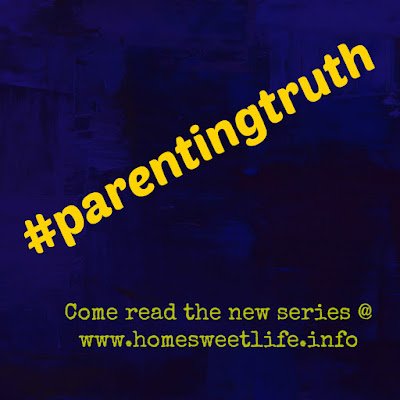Somewhere along the way an expert decided that all children should be able to learn to read well between the ages of five and seven. Today’s #parentingtruth is just me - dispelling that myth.
Most children in America learn to read between the ages of five and nine. The idea that a child is behind if they are not a proficient reader by age seven is a new one. Forty years ago when I went to Kindergarten, we were all learning our ABC’s together. Yes, there were a few kids who had gone to Preschool and already knew their letters, but I lived nearest the country elementary school, and not one of the city ones, so most of us had spent the previous year playing in our backyards and swinging at the park, not focusing on letters.
Sometime the summer before I started school, my parents, or at least my Mom, had gone to the school and our soon to be teacher suggested that they help us work on trying to learn our ABC’s before school started. You see, there is a HUGE world of difference between the 1970’s version of “try to learn” and the 2010’s version of “must know.” Did you know that there are school today where you cannot enter Kindergarten if you have not already mastered your letters, numbers and colors? Then what is the point of Kindergarten? Somebody stop that Merry-go-round now because it surely does not sound like a fun ride to be on!
So here I am today, telling all of you parents, that it is okay if your child has not become a fluent reader by age seven, or nine,… or even eleven. Each child is different, and it is up to you to decide if your child is meeting their potential. It is not up to a random standardized test to decide of their reading fluency is acceptable.
I think we all hope our children will learn to read at an early age, but that does not always happen. With our second daughter, it took a lot longer to learn to read, and then even more time for her to consider herself a good reader, than it did with her older sister. Reading is a subject where it is perfectly fine to be about average, but also okay tone slower than average. Your child will learn to read when they are ready. So stop pushing reading and get back to encouraging them to have fun as kids.
Here is the exception to the no pushing rule: if your child is being lazy or rebellious about reading, just to be a pain in the backside, then get to the heart of the matter with their attitude. Once that is dealt with, learning to read will be easier on both of you.
Now, about those encouraging activities. Read aloud to your children. Often! You can take them to the library and let them look at the covers of picture books and choose some to have you read to them. You can choose a few more books that look like they would be fun to read: silly stories like The Was an Old Lady, or stories about talking animals. You can choose some books that will challenge you as you read them aloud, like Dr Seuss. You can even choose a few books that you think might be a bit advanced for your children to listen to and appreciate, because you never know what subject might encourage them to listen well.
You can lead a child to a book, but you cannot make him read. So choose books about topics that interest him or her: dogs, spiders, cartoons, legos, unicorns, etc. Having a variety of books to use for read-alouds is the key to prevent yourself from getting stuck reading the same book every single day. :)
When your child does seem ready to learn to read, remember that there are a lot of different methods to choose from. Their school may focus on phonics, or they might focus on sight words. If what they try the first time isn’t working well for them, consider trying a different approach at home. If you are homeschooling, be willing to invest in more than one curriculum until you find what works.
Here are two last things to remember when your children are learning to read.
1- English is the exception to the rule, so don’t expect them to become fluent readers overnight. Think about ch/ck, i/y, or s/c, these are complicated for almost all new readers, so be patient.
2- If your child just doesn’t get reading, even if they say they want to learn how to read, just take a short break. You can try again in six months.
One last thing: read-aloud time should not end just because your child can read. Keep reading to them, so they understand that you enjoy spending time with them, and that ultimately your relationship as parent/ child is more import ran than their reading proficiency.
Happy Reading!


No comments:
Post a Comment